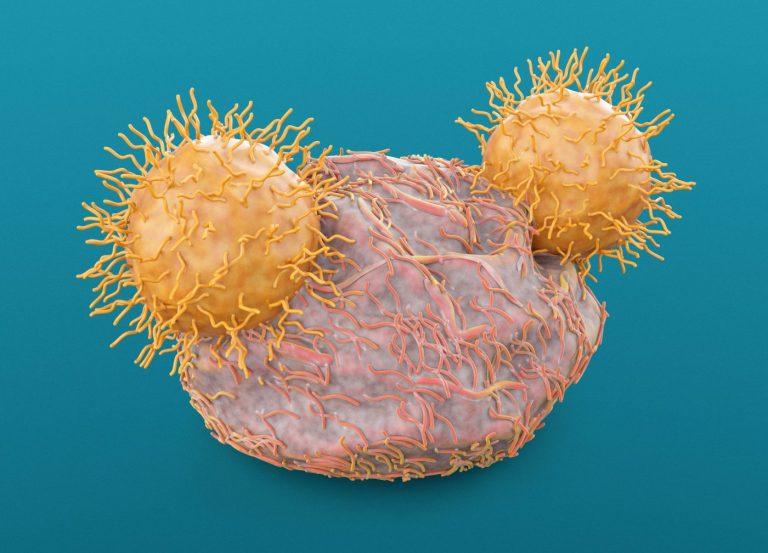
Mount Sinai scientists are the first to report potentially serious, Parkinson’s-like, side effects related to a CAR-T cell therapy that was recently approved for the treatment of multiple myeloma. The researchers found evidence that these side effects may be directly related to the treatment targeting B cell maturation antigen (BCMA). Their findings were published as a case study in Nature Medicine today.
“This study showed that BCMA-targeted CAR-T cell therapy can cross the blood-brain barrier at least in a subset of patients to cause a progressive neurocognitive and movement disorder. This shows that CAR-T cell therapies, although effective in multiple myeloma, warrant close monitoring for neurotoxicity, especially as such treatments acquire more widespread implementation in multiple myeloma patients,” said Samir Parekh, MBBS, Professor of Medicine (Hematology and Medical Oncology), and Oncological Sciences, at Icahn Mount Sinai and the corresponding author of the case study.
Multiple myeloma is a complex and incurable type of blood plasma cancer that often requires multiple treatments as the disease progresses and becomes resistant to previous therapies, often resulting in chronic disease with periods of acute illness.
CAR-T cell therapy uses genetically engineered chimeric antigen receptor (CAR)-T cells. In this case, the CAR-T cells were used to target the protein BCMA , which is commonly found in multiple myeloma. This therapy, ciltacabtagene autoleucel, has shown impressive response rates in people with particularly complex, treatment-resistant multiple myeloma.
More than three months after finishing a course of BCMA-targeted CAR-T cell therapy, the patient featured in the Mount Sinai case study started showing progressive neurological features of symptoms resembling Parkinson’s disease, including tremors as well as handwriting and gait changes. The patient later died due to complications from infection, and researchers found evidence of BCMA protein in his brain’s basal ganglia and scarring in that area, suggesting that the side effects may have been due to the therapy targeting the BCMA in the brain.
Common side effects of this treatment are related to cytokine release syndrome (CRS) and neurotoxicity—typically reported neurologic symptoms include headache, confusion, hallucinations, dysphasia, ataxia, tremor, and seizures. But these authors point out that there have been reports of three patients with grade 3 or higher parkinsonism in the current phase 2 ciltacabtagene autoleucel trial.
“Our findings will impact the risk-benefit assessment of BCMA-targeted CAR-T cell therapy for multiple myeloma and have already led to improved monitoring and proactive management of neurologic adverse events across clinical trials of BCMA-targeted therapy,” said Oliver Van Oekelen, M.D., Ph.D. student at the Icahn School of Medicine at Mount Sinai and the first author of the manuscript.
BCMA-targeted CAR-T therapy and similar immunotherapies are being used or tested in other types of cancers.
In this study, researchers analyzed clinical data, blood, spinal fluid, and brain samples after the CAR-T infusion. Mount Sinai’s Human Immune Monitoring Center, led by Miriam Merad, M.D., Ph.D., found CAR-T cells in the blood and spinal fluid, this led scientists to believe that CAR-T cells targeting the basal ganglia and infiltrating the brain caused the Parkinson’s-like symptoms.
Though these findings are limited by the inherent fact that this is a case study on a single patient’s reaction, a clinical trial of a BMCA-targeted CAR-T therapy has also reported that five percent of patients in the trial experienced movement and neurocognitive treatment-related adverse effects. Researchers also found evidence of BCMA expression in the brains of healthy individuals.













